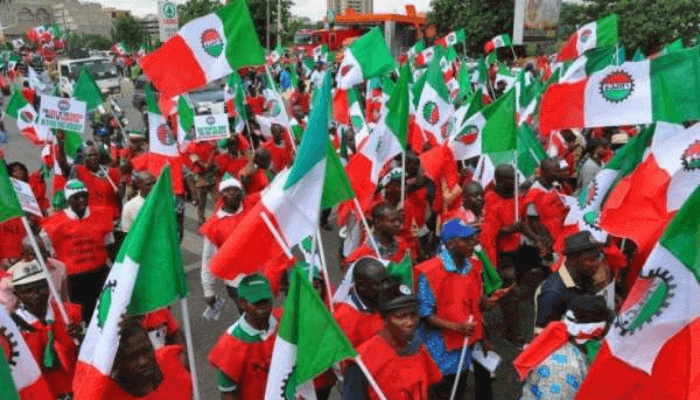
The Nigeria Labour Congress (NLC) and Trade Union Congress (TUC) have suspended their indefinite strike, which began on June 3, 2024, over the federal government’s failure to implement a new national minimum wage and reverse the electricity tariff hike.
According to a four-point resolution signed by representatives of both parties, the federal government has committed to paying a minimum wage higher than N60,000. The tripartite committee on the new national minimum wage will meet daily for the next week to negotiate an agreeable figure.
Organized labour has agreed to convene a meeting to consider the government’s commitment, and no worker will be victimized for participating in the industrial action.
The strike had paralyzed Nigeria’s economy, with widespread shutdowns in the aviation, power, banking, ports, energy, road transport, and telecommunications sectors.
Labour leaders had initially proposed a minimum wage of N494,000, while the government offered N60,000. The latest commitment from the government indicates a willingness to pay a higher minimum wage.
Experts have called for realistic negotiations, citing the need for a minimum wage that addresses the country’s cost of living adjustments and keeps the economy competitive. Some have suggested a minimum wage of N150,000.
The strike’s suspension and return to negotiation mark a significant development in the ongoing labor dispute, with hopes for a resolution that benefits both workers and the government.
